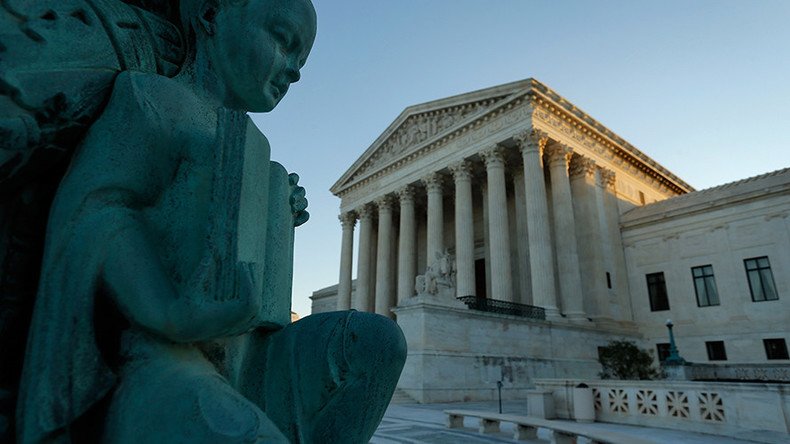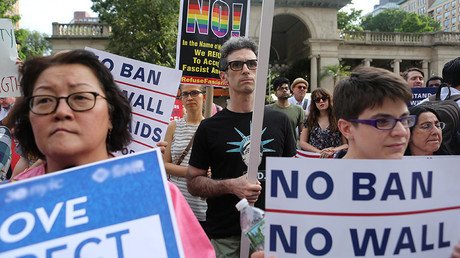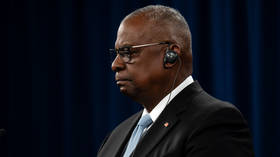US Supreme Court allows grandparents as family relationship under travel ban

A federal judge in Hawaii was right to include grandparents in definition of family members, the US Supreme Court has ruled, rejecting a Trump administration complaint. The judge’s ruling on refugees was sent down to the federal appeals court, however.
The Supreme Court’s June 26 decision had allowed an exemption from the travel ban for “close family members,” but left that definition up to the government. The State Department decided the ban would not apply to nationals of the six countries listed who had a parent, spouse, fiancé, son or daughter, son-in-law or daughter-in-law, or sibling already in the US.
Last week, Judge Derrick Watson in Hawaii ruled that grandparents, grandchildren, brothers-in-law, sisters-in-law, aunts, uncles, nieces, nephews, and cousins should also be considered “close family members,” challenging the government’s narrower definition.
Watson also ruled that “assurance from a United States refugee resettlement agency” was the sort of “bona fide relationship” that would exempt a potential refugee from being barred from the US under the executive order.
The Department of Justice challenged both decisions before the Supreme Court on Friday. In a brief announcement on Wednesday, the highest court in the land said that Watson’s refugee ruling would be suspended pending a resolution before the 9th Circuit Court of Appeals, but rejected the government’s argument against his definition of close family.
Justices Clarence Thomas, Samuel Alito and Neil Gorsuch favored overruling Judge Watson’s injunction in its entirety, which was their position regarding the original Supreme Court decision. In his dissent at the time, Thomas worried that carving out an exemption for “an unidentified, unnamed group of foreign nationals abroad” would result in “a flood of litigation until this case is finally resolved on the merits.”
Watson’s refugee ruling now goes before the 9th Circuit, which opposed the government on the travel ban in March. At the end of June, the Supreme Court allowed the ban to go into effect, with exemptions, until the case can be heard at the start of its next term in October.
Grandparents are in: #SCOTUS denies US motion for #TravelBan clarification; stays ruling on refugees (and sends issue to Ninth Circuit): pic.twitter.com/84q7DOTzKp
— Steve Vladeck (@steve_vladeck) July 19, 2017













